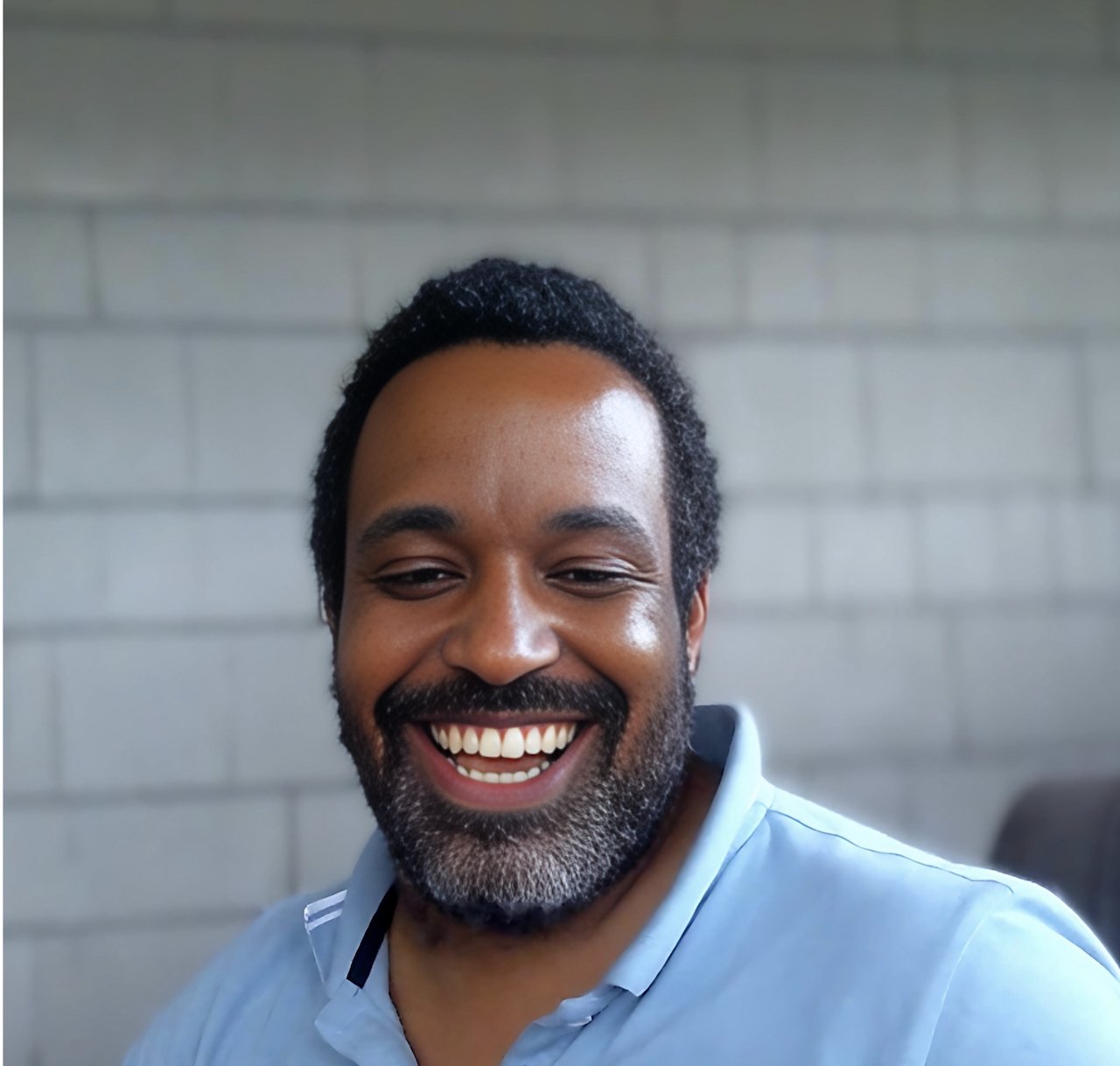Creating a Legacy of Impact Philanthropy as an Affection for Humanity
Philanthropy, at its core, is a profound expression of love for humanity. It's not merely the act of giving away money; it's about nurturing a deep connection to people and their futures. This connection drives a commitment to improving the human condition. To embrace philanthropy is to understand that we are part of a larger narrative, one where our actions today reverberate through generations. It's a journey driven by empathy and the desire to make a lasting difference in the lives of others.
This affection for humanity means recognizing that every person holds unique potential. Philanthropy aims to unlock this potential, creating opportunities where there were none. It's about more than alleviating current problems; it's about establishing frameworks that allow individuals and communities to flourish. The true essence of philanthropy lies in its ability to inspire hope and ignite change on a grand scale.
Enduring Influence vs. Immediate Aid
Philanthropy and charity, though often used interchangeably, serve different purposes. Charity tends to focus on addressing immediate needs, providing urgent relief to those in crisis. This kind of support is essential for alleviating suffering in the short term and offers a lifeline in times of acute distress. However, its effects are usually temporary, providing necessary but fleeting relief.
Philanthropy, on the other hand, aims for enduring influence. It seeks to create long-term change by addressing the root causes of issues and fostering sustainable development. This approach involves investing in areas like education, healthcare, and infrastructure—sectors that build the foundation for ongoing progress and self-sufficiency. By tackling the underlying problems, philanthropy helps communities to grow stronger and more resilient over time.
The distinction between these two forms of giving lies in their scope and longevity. Charity is often reactive, providing quick fixes to immediate problems. Philanthropy is proactive, focusing on long-term solutions that empower individuals and communities. This approach encourages systemic change, transforming not just individual lives but entire societies.
Philanthropy also emphasizes building capacity and capability. It’s about creating opportunities for people to lift themselves out of difficult circumstances, enabling them to become agents of change in their own right. This empowers communities to build a better future, breaking the cycle of dependency and fostering independence and growth.
In summary, while charity is vital for immediate relief, philanthropy works towards a future where such relief is no longer necessary. By prioritizing sustainable solutions, philanthropy creates a lasting impact, driving progress and fostering a legacy of empowerment and prosperity.
The Importance of Intent in Generosity
The importance of intent in generosity cannot be overstated. It's the compass that directs our giving towards meaningful and sustainable change. When our intent is genuine and rooted in a true desire to make a difference, our philanthropic efforts become more than just actions; they transform into powerful catalysts for growth and development.
Intent shapes not just what we give, but how we give. It infuses our contributions with purpose and clarity, ensuring that our efforts align with our values and aspirations. When we give with intention, we move beyond the superficial act of giving and tap into the deeper significance of our actions. This level of giving requires us to be mindful and deliberate, focusing on long-term impact rather than short-term recognition.
A well-defined intent encourages us to be strategic in our philanthropic endeavors. It prompts us to ask critical questions: What do we hope to achieve? Who will benefit? How can we create the most significant and lasting impact? By answering these questions, we ensure that our generosity is not only effective but also meaningful.
Moreover, intent-driven philanthropy fosters deeper connections with the communities and causes we support. It transforms giving from a transactional activity into a relational one, where we engage with and understand the needs and aspirations of those we aim to help. This connection enhances the impact of our contributions, making them more responsive and adaptive to real-world challenges.
The mindset of intent also inspires a ripple effect, encouraging others to embrace a similar approach. When we lead by example, showing that our generosity is thoughtful and purpose-driven, we inspire others to reflect on their own giving practices. This creates a culture of intentional philanthropy, where every act of generosity contributes to a broader, more impactful movement.
Ultimately, the importance of intent in generosity lies in its ability to transform both the giver and the recipient. It elevates our philanthropic efforts, making them more effective, fulfilling, and aligned with our deepest values. By giving with intent, we create a legacy of thoughtful and impactful generosity, shaping a better future for all.
Philanthropy as Radiant Prosperity
Engaging in philanthropy invites us to reimagine prosperity in a broader, more luminous context. It encourages us to view success through the lens of the positive impact we create in the lives of others. This redefined prosperity is about contributing to the collective well-being and fostering a sense of interconnectedness that transcends material gains.
When we commit to philanthropy, we embark on a path that enriches not just the beneficiaries but also ourselves. This journey is profoundly rewarding, as it aligns with our inner values and provides a sense of purpose that goes beyond conventional metrics of success. The act of giving becomes a source of joy and personal growth, allowing us to leave a legacy that is deeply meaningful.
Philanthropy's radiant prosperity stems from its ability to create lasting, positive change. By focusing our efforts on initiatives that uplift communities and build sustainable futures, we generate a ripple effect of benefits that can endure for generations. This type of giving transforms lives in a way that is both significant and enduring, resonating far beyond the initial act of generosity.
Moreover, engaging in philanthropy with authenticity means that our contributions are a true reflection of who we are and what we stand for. This alignment ensures that our efforts are not only impactful but also personally fulfilling. It allows us to see our values come to life in tangible ways, providing a profound sense of satisfaction and accomplishment.
Philanthropy as radiant prosperity is a testament to the idea that true wealth is measured by the positive difference we make in the world. By embracing this form of prosperity, we can achieve a deeper level of fulfillment and create a legacy that speaks to our highest ideals and aspirations. Through thoughtful and intentional giving, we illuminate a path toward a better future for all, enriching both our lives and the lives of those we touch.
Finding Your Philanthropic Path
Discovering Core Values
In the intricate dance of leadership, where every decision can shape futures, discovering your core values is an essential, yet often overlooked, journey. These values are more than just guiding principles; they are the essence of who you are, the silent yet ever-present forces that drive your actions and decisions. Reflect on those pivotal moments when you felt a profound sense of alignment between your actions and your beliefs. What were the underlying principles at play? These are your core values, and they are the bedrock of your philanthropic endeavors.
Take a moment to consider what truly matters to you. What are the ideals that stir your soul and evoke a deep sense of purpose? These are not merely abstract concepts; they are the values that resonate with your innermost being. As a leader, your ability to make a meaningful impact is intimately connected to your understanding of these core values. They serve as a compass, guiding you toward causes that resonate deeply with your mission and vision.
Engage in a quiet introspection, allowing yourself the space to explore these values. What issues ignite your passion? What causes compel you to take action? This is not just an exercise in self-awareness; it is a powerful tool for aligning your philanthropic efforts with your true self. When you give from a place of genuine alignment with your values, your contributions carry an authenticity that can inspire and transform.
Consider the legacy you wish to create. How do you want to be remembered? What impact do you want your giving to have on the world? These questions are not merely rhetorical; they are invitations to delve deeper into your core values and how they can shape your philanthropic journey. Your legacy is not just a collection of actions; it is a reflection of your values in motion, a testament to what you hold most dear.
As you navigate this journey, remember that your core values are not static. They can evolve as you gain new insights and experiences. Allow yourself the flexibility to adapt and grow, ensuring that your giving remains aligned with your current values and aspirations. This ongoing reflection will help you maintain a sense of purpose and fulfillment, guiding your philanthropic efforts in a direction that is both meaningful and impactful.
In this exploration of core values, you are not alone. Many leaders have embarked on this journey, discovering the profound connection between their values and their philanthropic impact. Their stories serve as powerful reminders that when you give from a place of deep alignment, you create a ripple effect of positive change. Let their experiences inspire you as you uncover your own path, grounded in the values that define who you are.
Investigating Meaningful Causes
Your core values serve as the compass for your philanthropic journey, guiding you toward causes that deeply resonate. It's time to identify those issues that not only spark your interest but also ignite a sense of urgency and commitment within you. This is not a task to be taken lightly; it requires a thoughtful and introspective approach.
Consider the moments in your life when you felt compelled to act—what were the issues at the heart of those moments? Perhaps it was witnessing the impact of educational inequality, or maybe it was experiencing the profound effects of healthcare disparities. Whatever the case, these moments offer clues to the causes that align with your deepest convictions.
Take a step back and assess the landscape of potential causes. What social, environmental, or economic issues stir your passion? Is it the pursuit of educational equity, the fight for healthcare access, the commitment to environmental sustainability, or the push for social justice? Each of these areas presents an opportunity to make a significant impact, but it's crucial to choose those that align closely with your values.
Once you have identified potential causes, delve deeper into understanding their complexities and nuances. What are the root problems? Who are the key players involved? What strategies have been successful, and where are the gaps that still need to be addressed? This comprehensive understanding will not only inform your giving but will also empower you to contribute in a way that is both meaningful and effective.
Moreover, consider how these causes align with your personal or organizational objectives. Philanthropy is not an isolated endeavor; it is deeply intertwined with your broader mission. Reflect on how supporting these causes can enhance your leadership values and contribute to your overarching goals. For instance, if your organization prioritizes innovation, consider how funding educational programs in underprivileged communities can foster the next generation of innovators.
Engage with organizations and leaders already making strides in these areas. Learn from their successes and challenges, and consider how you can support their efforts or collaborate to amplify the impact. Building relationships with like-minded individuals and organizations can provide valuable insights and open doors to new opportunities for meaningful engagement.
As you navigate this process, remain open to the evolution of your interests and priorities. The causes that resonate with you today may shift as you gain new experiences and insights. Allow yourself the flexibility to adapt and grow, ensuring that your philanthropic efforts continue to align with your current values and aspirations.
In this journey, it's essential to maintain a balance between head and heart. Use your analytical skills to assess the potential impact and sustainability of your contributions, but also trust your instincts and emotional responses. The causes that evoke a profound emotional connection are often those that will sustain your commitment and drive meaningful change.
Finally, be prepared to invest not only your financial resources but also your time and expertise. True engagement requires more than writing a check; it involves active participation, ongoing learning, and a willingness to advocate for the causes you believe in. Your unique skills and experiences can be invaluable assets in driving progress and creating lasting impact.
By investigating and choosing meaningful causes with care and intention, you position yourself to make a significant and authentic contribution to the world. Your philanthropic journey, guided by your core values, will not only create positive change but also enrich your own sense of purpose and fulfillment.
Integrating with Your Mission
To achieve meaningful change, your philanthropic strategy must be woven seamlessly into your broader mission. This integration goes beyond just aligning your giving with immediate needs; it's about ensuring that your efforts support both short-term goals and long-term visions. Reflect on how your philanthropic activities can reinforce your leadership values and contribute to the overarching objectives of your organization. Whether you are an entrepreneur seeking to foster innovation or an executive dedicated to advancing diversity and inclusion, your giving strategy should complement your mission.
Consider the intersection of your philanthropic goals and your professional aims. How can your contributions extend the reach of your organization’s mission? For instance, if your leadership prioritizes sustainability, your giving could focus on environmental causes that also promote your company’s commitment to green practices. This approach creates a unified narrative, making your philanthropic work an extension of your professional ethos.
Think about the unique resources and skills your organization brings to the table. Financial contributions are important, but your expertise, networks, and influence can be equally powerful. By leveraging these assets, you can magnify the impact of your philanthropic efforts. For example, if your mission includes fostering technological innovation, consider supporting educational initiatives that cultivate tech skills in underserved communities. This not only advances your mission but also creates a pipeline of future innovators.
It's also crucial to engage your team in these efforts. Philanthropy can be a powerful tool for building a cohesive and motivated workforce. Involve your employees in the decision-making process and encourage them to contribute their time and talents. This collective effort can enhance the impact of your giving and foster a culture of shared values within your organization.
Regularly revisit and reassess the alignment between your giving and your mission. As your organization evolves, so too should your philanthropic strategy. Stay attuned to changes in your industry, community, and the broader social landscape. This dynamic approach ensures that your giving remains relevant and impactful, continually reinforcing your leadership values.
Lastly, communicate your philanthropic initiatives clearly and transparently. Share your vision, goals, and outcomes with stakeholders, including employees, partners, and the communities you serve. This openness builds trust and demonstrates your commitment to integrating philanthropy with your mission. It shows that your giving is not a peripheral activity but a core component of who you are and what you stand for.
By weaving your philanthropic strategy into the fabric of your broader mission, you create a powerful synergy that amplifies both your professional and personal impact. This thoughtful integration not only advances your leadership goals but also nurtures a legacy of meaningful change.
Profiles of Philanthropic Success
When considering how to align your philanthropic efforts with your core values, looking at the paths taken by other successful leaders can provide invaluable insights. Melinda Gates, co-chair of the Bill & Melinda Gates Foundation, offers a compelling example. Her commitment to gender equality is evident not just in her public statements but in the very structure and initiatives of her foundation. By focusing on empowering women and girls, Gates has created a lasting impact that goes beyond immediate charitable actions. Her work is a testament to the profound changes that can occur when your giving is in perfect alignment with your deepest convictions.
Marc Benioff, the CEO of Salesforce, provides another enlightening case. Benioff has long been a proponent of using business as a platform for change, integrating his company's values with his philanthropic endeavors. His work on issues such as homelessness and education isn't just about writing checks; it’s about leveraging Salesforce’s resources, influence, and networks to drive systemic change. Benioff’s approach underscores the importance of not only financial contributions but also strategic thinking and active involvement in the causes you care about.
Let's also consider Oprah Winfrey, whose philanthropic efforts are a direct extension of her life’s work and values. Through the Oprah Winfrey Foundation and her other charitable ventures, she has made significant strides in education, healthcare, and youth empowerment. Winfrey’s philanthropy is deeply personal, often reflecting her own life experiences and the challenges she has overcome. This personal connection not only drives her passion but also ensures that her contributions have a lasting and meaningful impact.
Another figure worth examining is Howard Schultz, former CEO of Starbucks. Schultz has been a vocal advocate for social issues such as education, veterans' affairs, and racial equality. His philanthropic activities are seamlessly integrated with his professional mission to create a more inclusive and equitable society. Schultz’s approach shows how business leaders can use their platforms to champion causes that are closely aligned with their organizational values, creating a unified and powerful narrative.
Laurene Powell Jobs, through the Emerson Collective, has also made significant contributions that align with her personal and professional values. Focusing on education, immigration reform, and social justice, Powell Jobs exemplifies how targeted, strategic philanthropy can address systemic issues. Her approach often involves not just funding initiatives but also advocating for policy changes and innovative solutions, demonstrating a holistic understanding of the complexities involved.
The late Paul Allen, co-founder of Microsoft, offers another instructive example. Allen's diverse philanthropic interests ranged from technology and science to the arts and environmental conservation. His giving was characterized by a deep curiosity and a desire to explore and support a wide array of human endeavors. Allen’s story illustrates the importance of following your intellectual and emotional inclinations when choosing causes to support, ensuring that your philanthropy is both diverse and deeply satisfying.
Sara Blakely, founder of Spanx, has also made notable contributions through her philanthropic work, particularly in empowering women entrepreneurs. Blakely’s foundation has focused on providing opportunities for women to succeed in business, reflecting her own journey and the challenges she faced. Her approach highlights the impact of leveraging personal experiences and insights to drive philanthropic efforts that resonate on a deeply personal level.
These leaders share a common thread: their philanthropic efforts are not isolated actions but integral parts of their broader missions and values. They demonstrate that effective philanthropy requires more than financial contributions; it demands a thoughtful, strategic approach that leverages all available resources, including time, expertise, and influence. By deeply aligning their giving with their values, they create a powerful synergy that amplifies their impact and enriches their own lives.
In your own journey, these profiles can serve as both inspiration and guidance. Reflect on how these leaders have navigated their philanthropic paths, integrating their giving with their core values and broader missions. Consider how their approaches can inform your own strategy, helping you create a meaningful and lasting impact. By aligning your philanthropic efforts with your deepest convictions, you not only contribute to the greater good but also cultivate a profound sense of personal fulfillment and purpose.
Assessing Contribution Effectiveness
Assessing the effectiveness of your philanthropic contributions is not merely a box to be checked; it's a vital practice that ensures your efforts align with your values and achieve meaningful outcomes. This reflective process allows you to deepen your understanding of how your giving is impacting the causes you care about and how it enriches your own sense of purpose.
Begin by setting clear and measurable goals for your philanthropic initiatives. What specific changes do you hope to see? Establishing benchmarks can help you track progress and identify areas that need adjustment. Metrics are important, but they should not overshadow the qualitative aspects of your impact. Consider the stories and experiences of those you are helping—these narratives often reveal the deeper, more nuanced effects of your contributions.
Regularly review your goals and the progress being made toward them. Engage with the organizations and communities you support to gather firsthand insights into how your contributions are being utilized. This direct feedback is invaluable; it provides a more comprehensive picture of your impact than numbers alone can offer. Are the initiatives you’re funding achieving their intended outcomes? Are there unexpected challenges or successes?
In addition to evaluating external impacts, reflect on your internal journey. How is your giving influencing your sense of fulfillment and alignment with your core values? Are you finding that your philanthropic efforts are enhancing your leadership and personal growth? This introspection can be as revealing as the external metrics, helping you understand the full scope of your contributions' impact.
Leverage your professional skills and resources to enhance your philanthropic effectiveness. Utilize your expertise in strategic planning, project management, or data analysis to refine your approach. Consider conducting formal assessments or commissioning studies to gain deeper insights into the effectiveness of your contributions. Collaborating with experts and other philanthropists can also provide valuable perspectives and strategies for improvement.
Transparency and accountability are crucial components of effective philanthropy. Share your findings with your stakeholders, including employees, partners, and the communities you serve. Being open about your successes and challenges builds trust and demonstrates your commitment to continuous improvement. It also invites constructive feedback and encourages a culture of shared learning and growth.
Flexibility is key in this ongoing assessment process. Be prepared to adapt your strategies as you learn more about what works and what doesn’t. Philanthropy is not static; it evolves as you gain new insights and as the needs of the causes you support change. Remaining open to this evolution ensures that your contributions stay relevant and impactful.
Celebrate your successes, no matter how small they may seem. Recognizing the positive changes your contributions have made can be incredibly motivating and reinforce your commitment to your philanthropic journey. However, also acknowledge the setbacks and challenges. Use these experiences as learning opportunities to refine and strengthen your approach.
Consider the broader implications of your giving. How does your philanthropy intersect with systemic issues? Are there ways to address root causes rather than just symptoms? Engaging in this deeper level of analysis can amplify the impact of your contributions, leading to more sustainable and transformative outcomes.
Lastly, remember that effective philanthropy is a journey, not a destination. It requires ongoing reflection, assessment, and adaptation. By continuously evaluating the effectiveness of your contributions, you ensure that your giving remains true to your values and continues to make a meaningful difference. This thoughtful approach not only maximizes your impact but also fosters a profound sense of purpose and fulfillment, enriching both your life and the lives of those you aim to help.
Ready to Transform Your LIfe?
If you're feeling inspired by what you've read and want to take the next step towards achieving your goals, why wait? Join my coaching program and start your journey today!Sign up now for a free consultation to discover how I can help you unlock your full potential.







